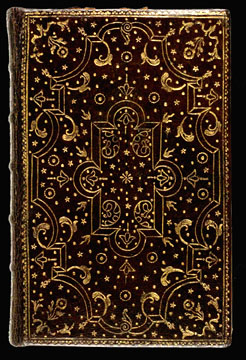

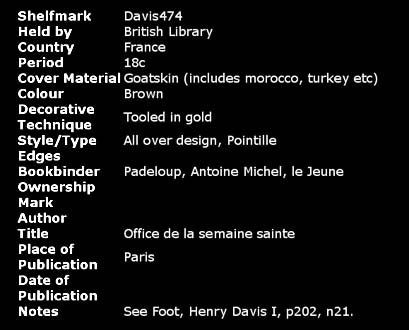
| To continue with our study of the Padeloup imprints, I have reproduced above a very important binding found in the British Library Database of Bookbindings, shelfmarked as Davis474. Because this is a very small book the enlarged Database image is better than most, and from it we are able to extract some excellent imprint examples. |
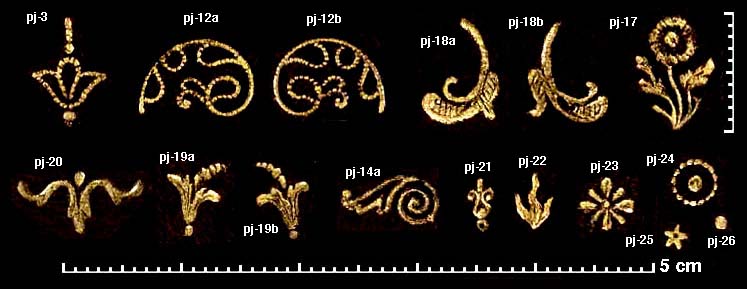
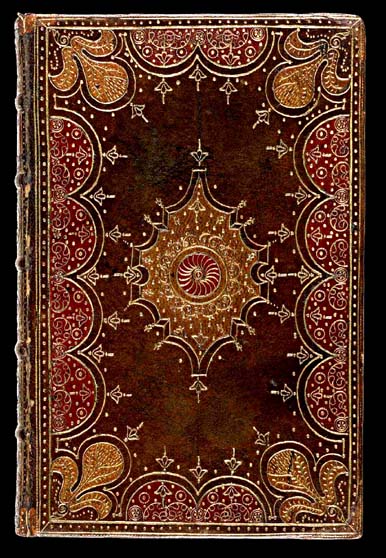
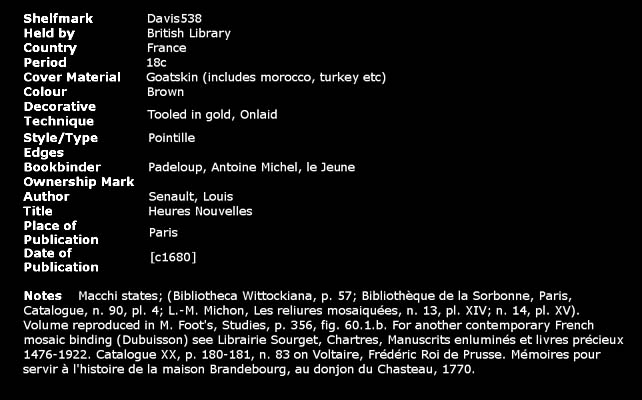
| I have reproduced above another very important Padeloup binding found in the British Library Database of Bookbindings, shelfmarked as Davis538. Here we see stylistic transitions which perhaps reflect the style of the period. One wonders if this was Padeloup's idea or the result of a client asking for a 'trendy' binding. More important perhaps is the parallel use of tools and strapwork seen in these two examples. Below I show some of the important tool imprints. There are others; however; I have chosen only those which are well defined. I cannot overemphasis the importance of these British Library Database examples. The photographs include a ruler for scale measurements. Thus the image can be reproduced digitally at its true size and imprints accurately measured. |
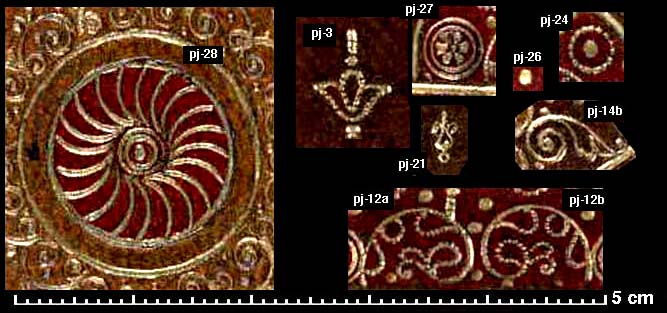
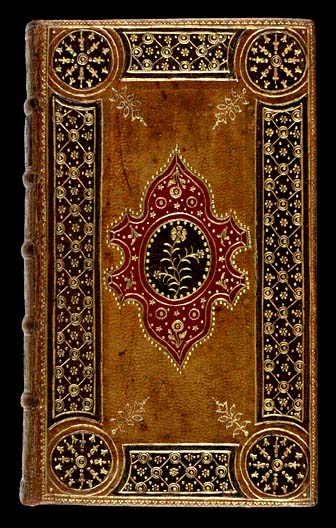
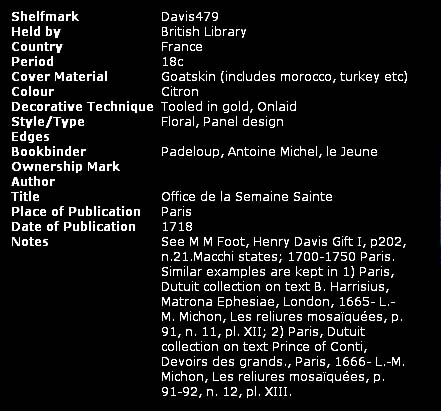
| In this third Database example, we see again some of the same tools and favorite arrangements. Perhaps the most important Database detail here is the publication date of 1718. If it turns out that this binding was produced soon after, we might be able to start working on some sort of chronological pattern in these bindings and the tools used during various periods. At a minimum, we see in these three examples the repeated use of certain tools. A careful study of these imprints will reward the researcher with a powerful means to recognizing the work of Padeloup le Jeune. |
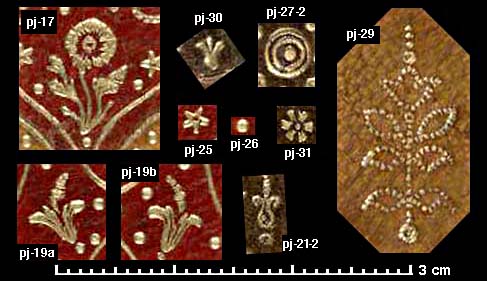
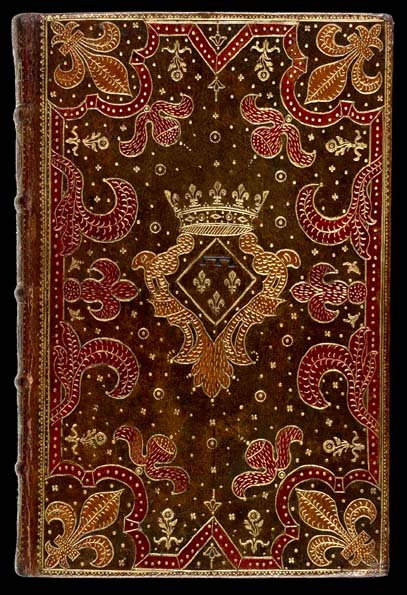
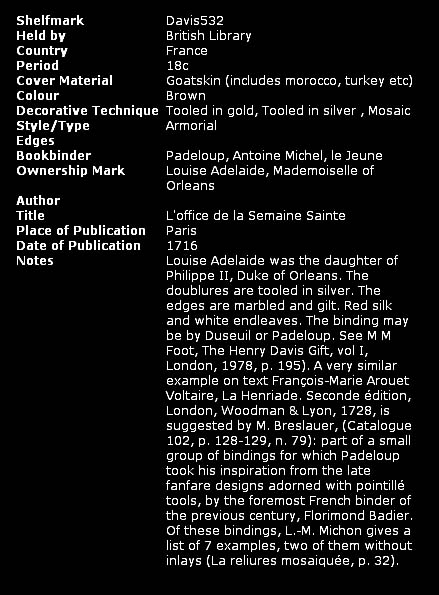
| Here then is the last example for this page, another from British Library treasurebase. Note the publication date of 1716: this turns out to be very important as we will see in the following pages. I have assembled below some of the main imprint examples from this binding. Again we see the same tools. Here is really the basic kit, the imprints well distributed, in this spectacular binding. Considering the three previous examples and the appearance of so many recurring imprints one is assured that this is undoubtedly another binding that derives from Padeloup's Sorbonne workshop. How is it possible, then, that we find a database note questioning the attribution of this binding? How could this work be possibly attributed to Duseuil? Here we discover an enormous puzzle which we will examine in the next few pages. |
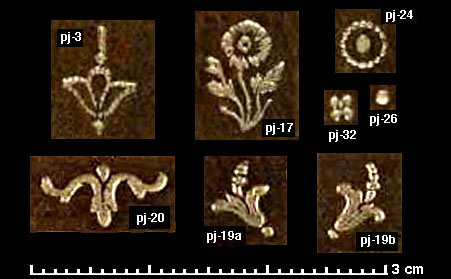
|
Go to the next Page Duseuil or Padeloup?
See also A Comparative study of Pointillé tools from the Atelier of Antoine Michel Padeloup. |
| Go to Digital Alchemy | return to the home page of cyclopaedia.org |